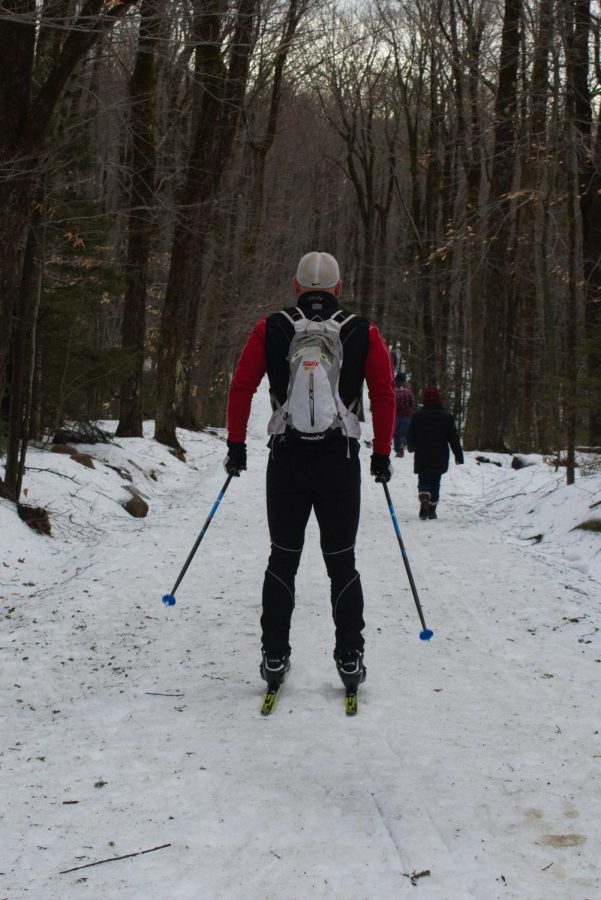Berkshire Slush Fest
January 29, 2020
Berkshire Nordic Ski League director Joe Miller dubbed January 11’s race a “Nordic Slush Fest” before it even happened. When the athletes arrived at the course Saturday morning, they found a field of grass where the previous week’s start had been. A slew of last minute course changes had spectators trudging through a mile of ice to arrive at the 2-kilometer loop that had just enough powder to support the some 200 skiers in the league.
“We have less snow than we used to,” Greylock ski coach Hilary Greene said. “People begin to question why we’re even doing this, if we aren’t able to ski.”
For Greene, the community is looking at a new sport.
“Your sport that you know of as being cross-country skiing, where you go into the mountains and go for kilometers and kilometers, becomes reduced to skiing around a 1-k track,” she said. “You start to lose numbers.”
Research from the Climate Impact Lab predicts a significant drop in the number of skiable days over the course of the century. In a study titled “America’s Shrinking Ski Season,” authors Kelly McCusker and Hannah Hess predicted as much as 80 percent drops in the length of the season by late-century for some popular ski resorts if carbon emissions continue to rise. Oregon’s Mt. Bachelor, where the U.S. Cross-Country Ski team trains every year, may see a 23 week season turn to 12 weeks.
The research includes two projections: one for a continued rise in emissions, and one for the controlled emissions outlined in the Paris Climate Accords.
The rapid changes occur under McCusker and Hess’ “high emissions scenario.” The low emissions scenario projects a less but still significant decline in the length of the ski season. For Mt. Bachelor, it’s a 26 percent drop, compared to almost 50 percent under high emissions.
“It’s useful to look at two different scenarios,” Hess said, “to engage people in the exercise of imagining what the world could look like if we got serious about meeting our climate goals, versus what the world looks like if we don’t take the threat seriously.”
For the Berkshire League, this threat means an inconsistent race schedule and competitions scheduled just days in advance. None of the team’s races this season have occurred at their scheduled locations, and one has already had to be canceled.
“We’ve always had the ups and downs, but it’s a lot more severe now,” Lenox coach Joe Bazanno said. “Through the course of the year, week by week we don’t know what we’re doing.”
In an informal, small-scale survey of around 20 members of the Greylock ski team, all but one mentioned that they have noticed unreliable weather patterns over the course of their years on the team, with respondents mentioning that “there’s no snow anymore” and that “the league used to never have to cancel races, but now it’s completely normal.”
